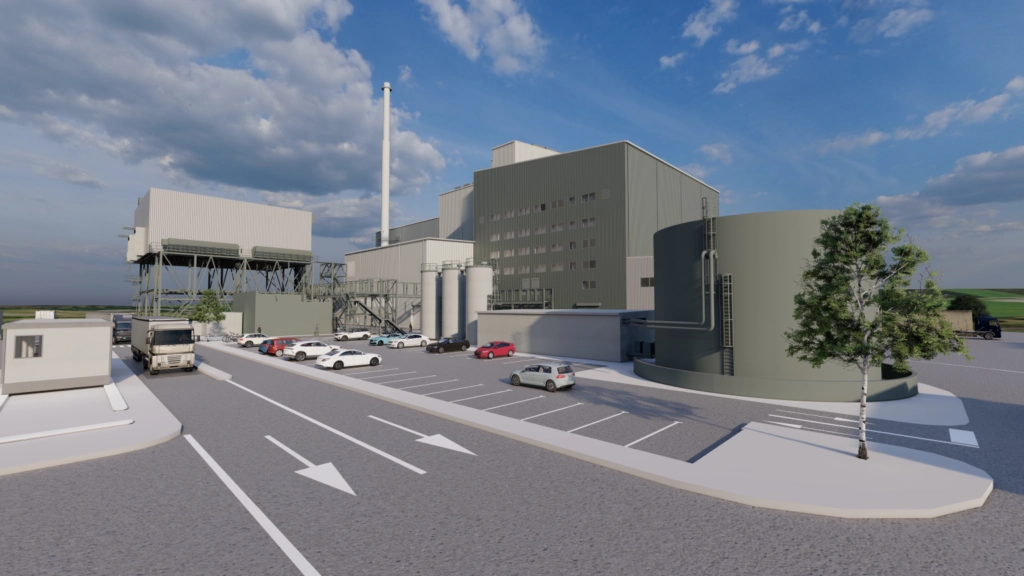A BBC investigation found that EfW produces the same amount of greenhouse gases for each unit of energy as coal power. With the last UK coal plant having closed last month, the article labelled EfW “the UK’s dirtiest form of power”.
NAWDO responds
The association responded with the following:
“The BBC article on EfW highlights the urgent need for an open discussion and systemic change to address and reduce the significant volumes of waste being produced in the UK. The article addresses only one aspect of the management of waste without considering key issues such as design, production and consumption of fossil-derived materials such as plastics and textiles, which make up a significant proportion of the unrecycled waste in the UK. Change needs to happen at the start – at the design and manufacture stages of a product. Drive out fossil-derived material at the front-end of production and the carbon emissions at the end of use (i.e. disposal) reduce significantly. Incoming policy and legislation such as Extended Producer Responsibility for packaging (EPR) and Simpler Recycling are due to begin in the coming months. Local authorities need these policies implemented as a matter of urgency, along with EPR being widened for other material streams such as textiles.
“Consumption is at the heart of the significant issue of the huge volumes of waste produced in the UK, as well as the climate emergency. Everyone – residents, businesses and government – must recognise that until this fundamental challenge is addressed and in line with the waste hierarchy, focusing on disposal only will not solve the problem – only a symptom. Energy Recovery Facilities represent a transition technology – being used as a stepping stone towards the circular economy.
“NAWDO supports the urgent need to decarbonise the waste sector. However, it is critical to note that for local authorities, the primary purpose of energy recovery facilities (ERF) is to manage non-recyclable waste that residents put out in their general waste bins. Use of energy recovery facilities is undertaken in line with the legal duty to protect public health through managing waste appropriately; energy generation is a secondary output to this approach. To compare it with other energy generation sectors such as coal is misleading and to do so without the context of wider waste management legislation and statutory responsibilities even more so. Household waste is not made up of clean elements of plastic, textiles, etc; the material is mixed and can be heavily contaminated with food and other materials, making it difficult to separate for recycling and other disposal options. Broadly, waste composition analysis of general waste handled by local authorities suggests that as much as ~50% could be recycled, etc through existing collection systems; the assumption made in the article that use of energy recovery reduces recycling is inaccurate. Where minimum tonnages may apply, these have previously been applied where the best available information supported this approach. Most contracts have flexibility on this.
“For waste that cannot be recycled, local authorities need solutions to deal with the waste being produced and at increasing volumes. A modern, efficient energy recovery facility involves the lower greenhouse gas emissions of the primary disposal options available currently. The BBC article fails to identify a suitable alternative to landfill, the worst option overall for the management of household waste as well as being far worse than energy recovery in terms of greenhouse gas emissions. There are many stringent controls on modern energy recovery facilities, which protect human health and the environment. These facilities are transparently regulated, deploy extensive pollution prevention and control equipment and are consistent with resource management by recovering energy in the form of heat and electricity, which displaces virgin fossil fuels used for this purpose.
“Local Authorities have limited reach in the context of the wider production and consumption systems. We also work hard to support residents to recycle as much as possible and we look forward to working with the Government on the implementation of various waste prevention programmes across the UK to drive waste volumes down while delivering the best environmental outcomes.”








Good feedback from the industry (ESA) and NAWDO – has the British B Corp. shown any interest in correcting the story – of course not. It really does require a debate, so why doesn’t the BBC pause Strictly one week and invite representatives from across the spectrum to discuss this important issue?